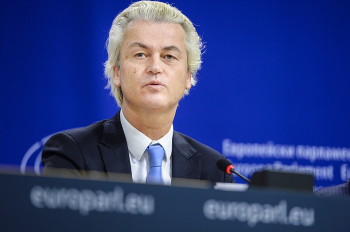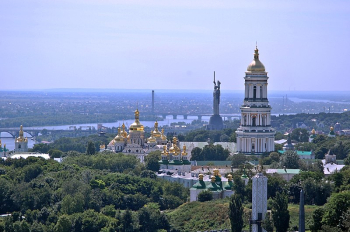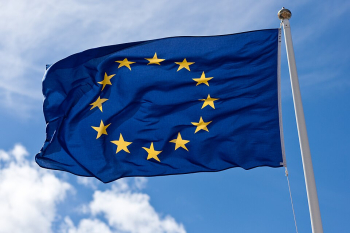
It's not often German big business openly dabbles in politics, but many companies are urging their employees to reject eurosceptics and right-wing populists in May 26 European
Parliament elections.
From Volkswagen to Eon and Thyssenkrupp, Germany's corporate titans have become unusually engaged in defence of an open Europe, a position that is in their own strategic interest.
It was the latest such initiative after the VCI chemical industry association recently launched a "Ja zu Europa" ("Yes to Europe") campaign.
Alarmed by projections that see the far-right garnering at least one in five votes in the polls, the head of the German Employers' Confederation, "boss of bosses" Ingo Kramer, in February warned of the "serious" threat extremist forces pose to the European project.
"I ask all German companies to clearly show their colours," he wrote, cautioning that "anti-Europeans from the left and the right" could end up obstructing the European Parliament.
Hubertus Bardt, head of the IW economic research institute, said that "never before have I seen so many companies publicly call for people to go and vote".
"Businesses are realising the importance of European integration," he told AFP.
- Open markets, free trade -
Most of the initiatives have come from large export-driven corporations that "are among the biggest beneficiaries of the European single market," said Alexander Kritikos from the German Institute for Economic Research (DIW).
The rest of the European Union accounted for 780 billion euros ($870 billion) worth of German exports last year, its biggest market.
"Developments such as Brexit, increasing populism, euroscepticism and nationalism pose an enormous economic risk, especially for companies of this size," said Andrea Roemmele of the Hertie School of Governance.
She said big business profits from the European single market and favours a strong EU that can assert economic interests on the world stage, while "nationalist efforts, such as those we see in the USA under President Trump, mean declining revenues".
Among other German business players, the Central Association of German Trade has published a "Yes to Europe" leaflet, while Ruhr industrial region giants Thyssenkrupp, RWE, Eon and Evonik will also encourage their employees to vote.
Thyssenkrupp boss Guido Kerkhoff told local media last month that "we need to better explain why we need open markets and free trade to succeed, not a withdrawal into our national shells".
Volkswagen will also issue a "clear call for a vote", its human resources chief Gunnar Kilian said earlier this year, stressing that "for European unity, for our common values, for peaceful cooperation ... our democracy needs every voice".
- Brand image boost -
Kritikos said the Brexit drama had driven home the point in the remaining 27 EU states that "it would be fatal for businesses if the single market were to break up".
Beyond the issue of maintaining open trade, a company taking a clear political stance can also boost its image as a responsible corporate citizen, experts say.
In another initiative, around 50 family-run enterprises recently launched a campaign against racism and xenophobia called "Made in Germany - Made by Diversity".
"Consumers are becoming increasingly critical and are consuming not only according to economic but also social and political criteria," said Roemmele.
Citizens with pro-European views, she added, "tend to be well educated and have strong purchasing power".
On the other hand, such campaigns can further alienate those employees already drawn to far-right ideas, as populist political groups are seeking influence in works councils, particularly among several car manufacturers.
"Companies must be careful not to fuel partisan conflicts in their factories," warned Bardt.
He pointed out that the corporate initiatives do not tend to mention any of the far-right parties by name, and said that the best way to combat extremist parties is high voter turnout. AFP
















